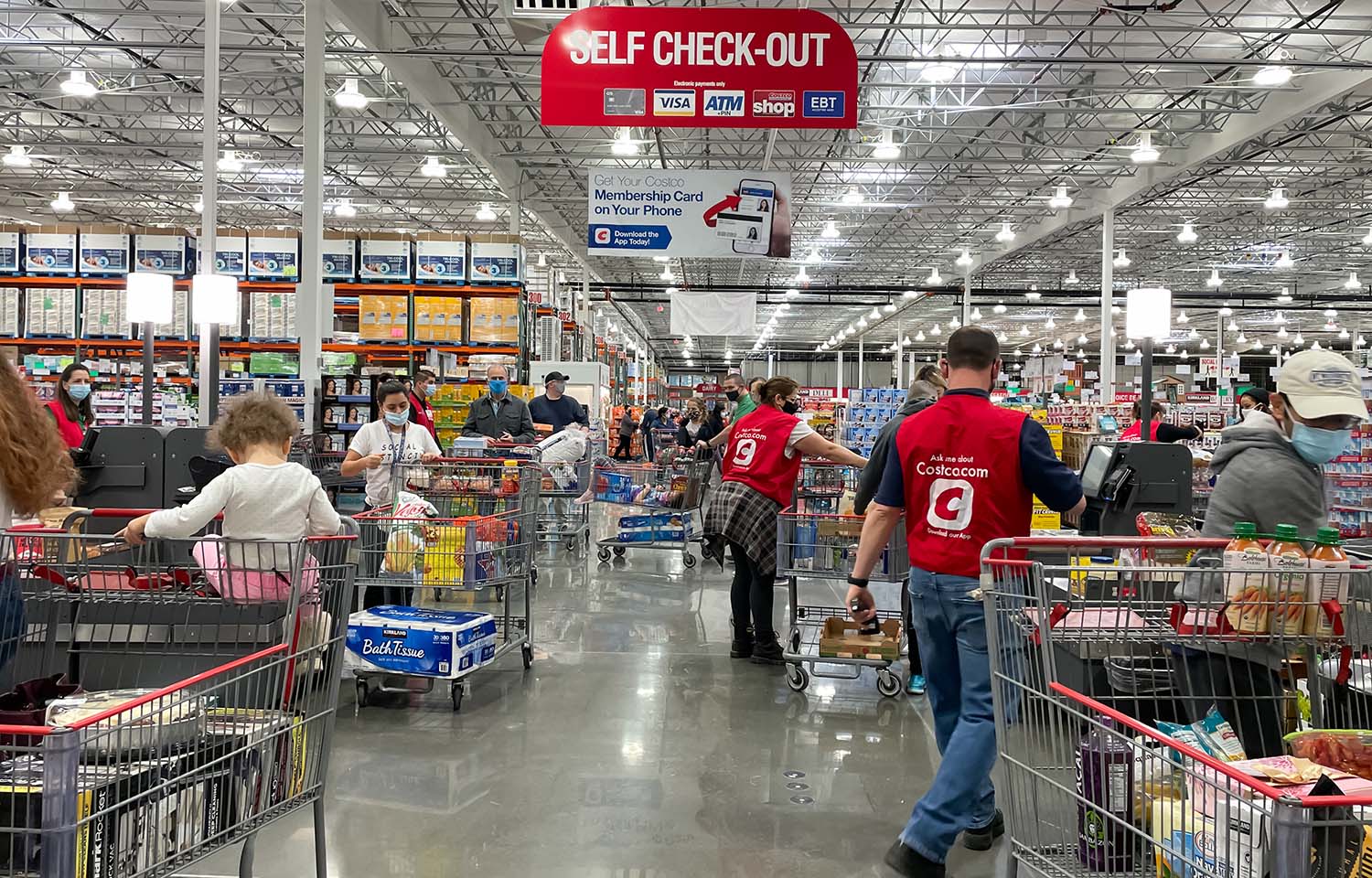A U.S. Costco store is allegedly displaying crab in the same way some retailers display high-end jewelry.
At a Costco store in King of Prussia, Pennsylvania, U.S.A., crabmeat is being stored behind a locked glass partition. Customers must first check out with a laminated paper containing a barcode and a photo of the crabmeat before they’re given access to the seafood, according to Reddit user pretty_with_no_r who posted a photo of the display.
The 16-ounce plastic container of jumbo blue crab featured in the photo, produced by Baltimore, Maryland, U.S.A.-based Phillips Foods, retails for nearly USD 39 (EUR 36).
It is unclear whether other Costco stores employ the same practice, and Costco did not respond to a request for comment from SeafoodSource. The company operates 871 warehouse club stores globally, including 600 in the U.S.
A Phillips Food executive also declined to comment on the display.
Nevertheless, the Reddit post has generated nearly 400 comments, with a user claiming to be a Costco employee saying the product is handled that way due to theft. Another said that it “seems like people often just pick it up out the fridge, leave it in the racks somewhere, and then it goes bad.”
Chuck Anderson, the vice president of operations and partner at Certified Quality Foods – a Dallas, Texas, U.S.A.-based firm that helps retailers and distributors measure quality seafood – told SeafoodSource that the former theory is correct, stating that Costco has implemented this measure due to theft.
“Costco requiring customers to access high-dollar crabmeat from a cashier is a practical solution to theft. The alternative is to discontinue selling high-dollar crabmeat altogether,” Anderson said.
It is not uncommon for retailers to decide not to carry or restrict sales of expensive products, usually in select stores where retail theft is more prominent. A 1-pound container of pasteurized crabmeat is prone to theft as it is small, has a long shelf life, and can retail for USD 40 (EUR 37) or more, according to Anderson, “making it a tempting target for professional and amateur shoplifters.”
However, restricting access to products by forcing customers through a multi-step purchasing process discourages sales due to the inconvenience it poses, Anderson said.
“[It] may be worth it in net profit for the retailer by reducing shrink,” Anderson said.
Theft of crab from Costco and other grocery stores is not uncommon, with thieves most typically targeting king crab legs.
For example, a man stole more than USD 1,100 (EUR 1,006) worth of king crab legs from a Costco store in Roseville, Michigan, U.S.A., in 2022. In August of the following year, a man allegedly stole around USD 800 (EUR 732) worth of crab legs from a Costco in Memphis, Tennessee, U.S.A.
In response to a spike in retail theft across the nation, the U.S. House Committee on Small Business held a full committee hearing on 11 January titled “Crime on the Rise: How Lawlessness is Impacting Main Street America.” Witnesses testifying before the committee included small business owners, activists, and law enforcement representatives.
In advance of the hearing, the National Association of Convenience Stores sent a letter to Committee Chairman U.S. Rep. Roger Williams (R-Texas) and Ranking Member U.S. Rep. Nydia Velázquez (D-New York) expressing concern that the level of violence and frequency associated with crime in their members’ stores has increased drastically in recent years.
“Retail crime has become a top issue of concern in our industry due to its dramatic increase,” the letter said. “Since January 2020, the monthly per store losses due to theft in the convenience industry has more than doubled. With that increase, by August of last year, merchandise losses due to theft reached an average per store per month total of USD 1,953 [EUR 1,796]. This is a huge blow for businesses that survive on tiny profit margins of less than 2.5 percent.”
The association’s members have seen increases in theft of all products – including motor fuels, lottery tickets, tobacco products, and cases of beer, the letter further said.
Photo courtesy of Jiujiuer/Shutterstock







